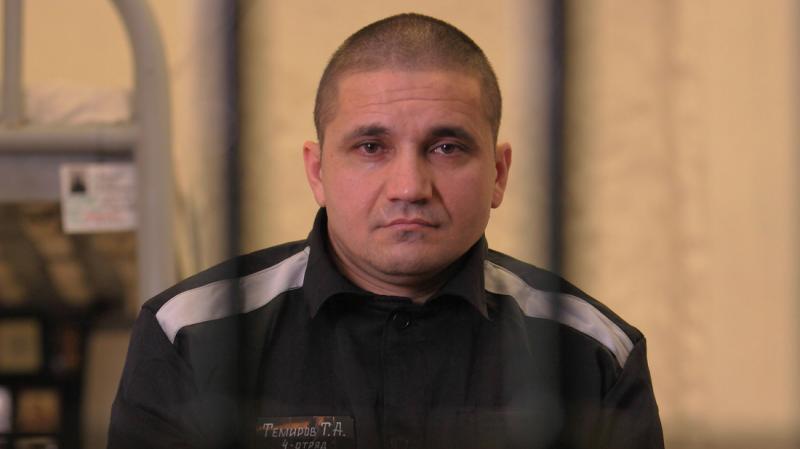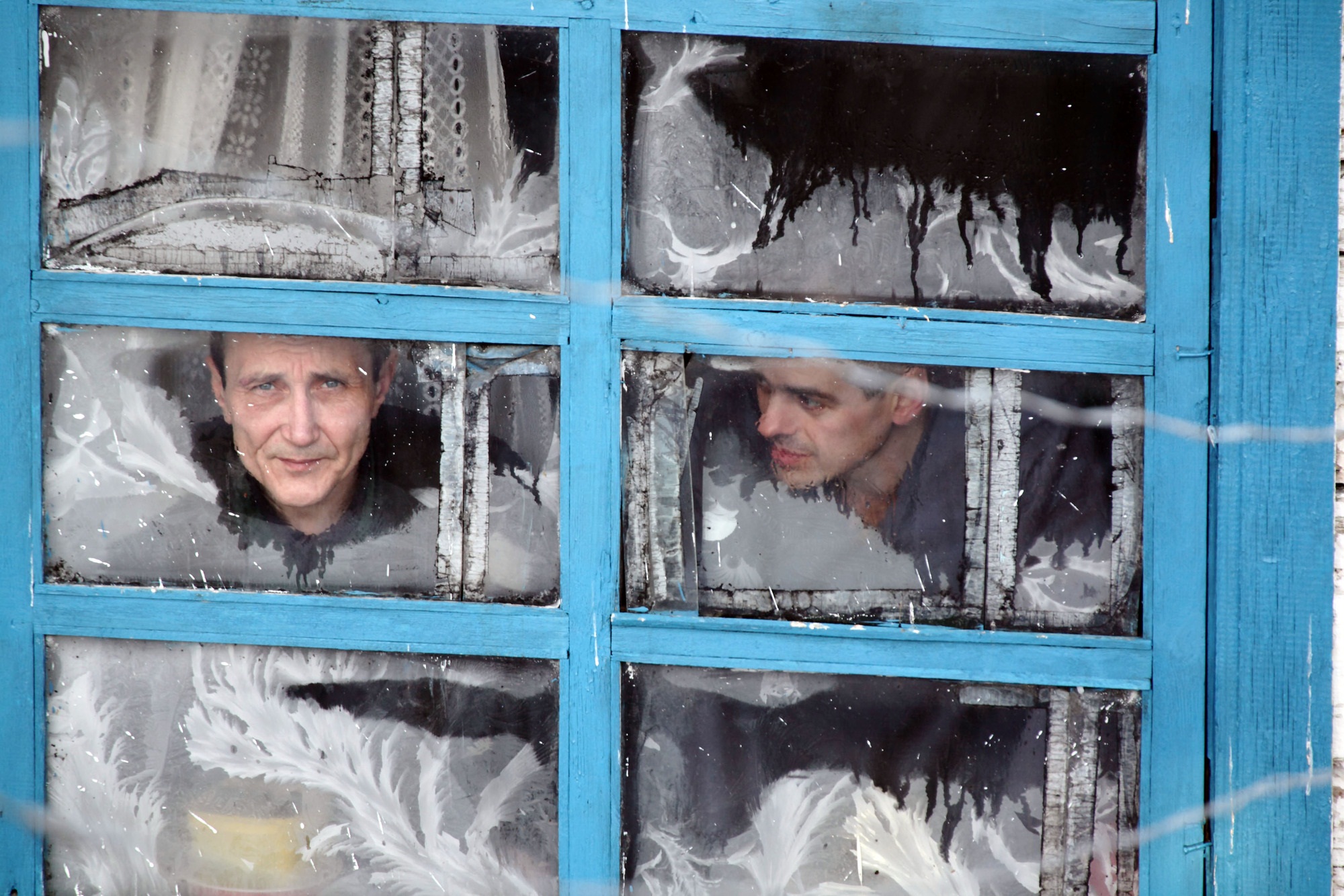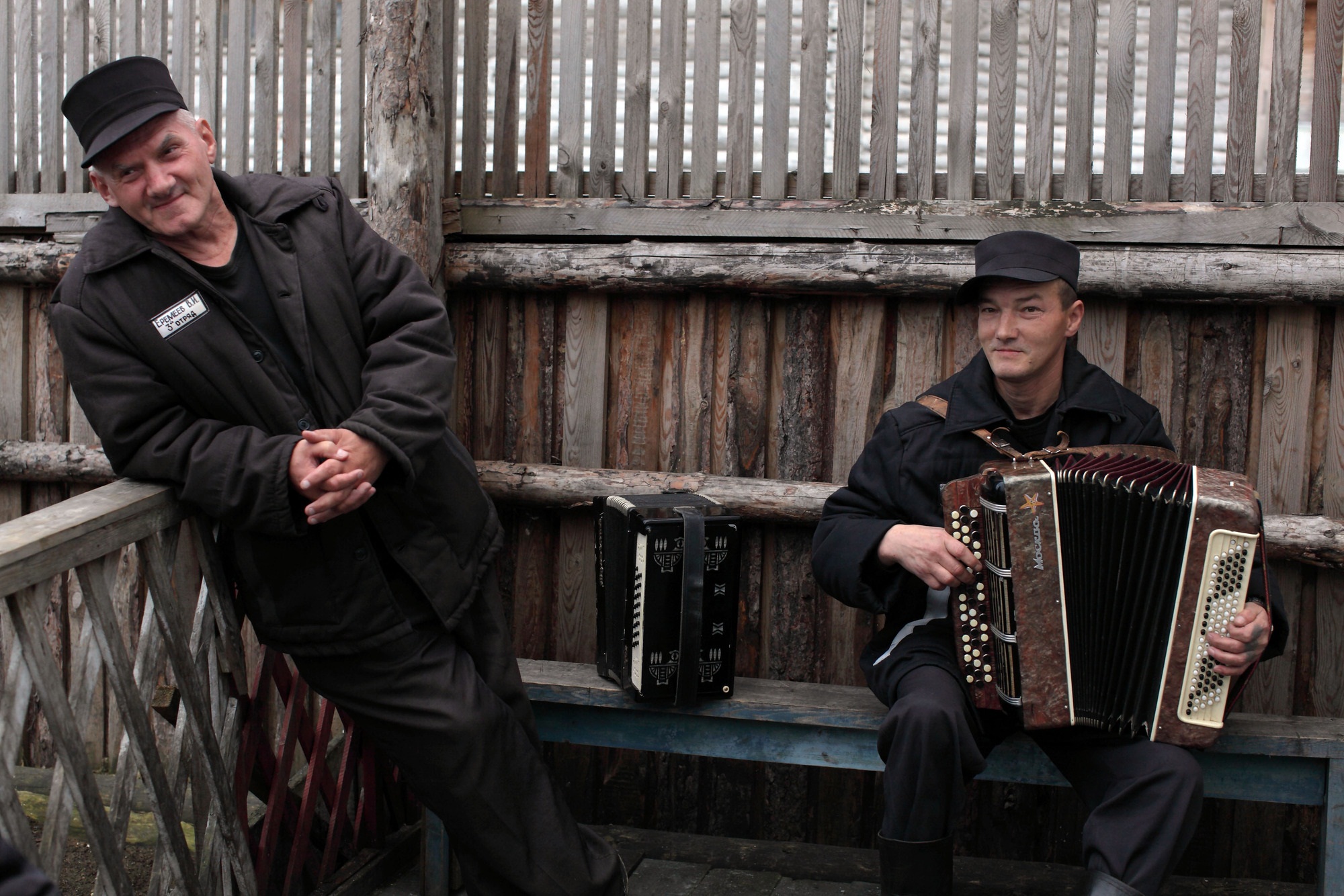Storyville: Russia's Toughest Prison - The Condemned, BBC Four | reviews, news & interviews
Storyville: Russia's Toughest Prison - The Condemned, BBC Four
Storyville: Russia's Toughest Prison - The Condemned, BBC Four
Nick Read's long-stretch documentary on remote Russian prison life

The initial challenge – and there should be no underestimating the scale of it – of Nick Read’s documentary Russia's Toughest Prison - The Condemned must have been getting into a location which the great majority of its inmates will never leave.
Read showed nothing that suggested conditions at Colony 56 were brutal – there was talk, however, of brutality at other prisons through which its inmates had previously passed – though the idea of attempting any kind of rehabilitation was clearly alien to Dadashov. He admitted that he thought the death penalty was more appropriate punishment, something with which a number of his inmates agreed (one particularly dark irony was that the abolition of the death penalty itself triggered a run of suicides). In every sense, this place was the end of the line, its remoteness underlined in opening credits that reinforced our preconceptions of Russia: the prison camp was located in a "forest larger in size than Germany", where winter temperatures dropped to minus 40, and where the nearest city was a seven hour drive away (we saw those endless roads).
Read certainly extended the boundaries of traditional documentary
But the real task facing Read was to get the prison inmates to open up about themselves and their pasts, and in that the director (doubling as his own cameraman) succeeded remarkably. We have no idea how many of the facility’s 260 inmates he approached, how many refused, or how long he put into the process (the only hint at time passing came when the season changed to winter, pictured below right), but the six who gave their detailed testimonies here could hardly have been more forthcoming.
They weren’t sparing with details, nor were they pleading justification, though the circumstances referred to by contract killer Timur Temirov (main picture) offered plentiful insight. Timur may have described himself as “born with a talent for crime”, but he equated the lawless decade that was Russia in the Nineties with the Chicago of the 1930s. So in the struggle to put bread on the family table, Timur told his wife Vlada that he worked in the oil industry as an explanation for those frequent absences. We saw Vlada (“I was Juliet to his Romeo”), and the couple’s son, on one of the twice-yearly visits that are permitted to “lifers”; it may have involved a journey of days, but all they got was four hours of telephone communication with the prisoner behind a glass barrier in a room where the only cheerful thing was the wallpaper. An anonymous buzzer terminated proceedings. At least we suspected that if Timur got through his term, he’d have somewhere to go back to. Until then he’d turned to the philosophers – Plato, Socrates – for consolation, his regrets being equally the lack of advance “knowledge of how cruel you’ve been to your family” and the wish to ask for forgiveness from the families of those he had killed.
 Nineties Russia may have been a dog-eat-dog world, but equally often the fault lay with the more everyday factor, booze. Maxim Kiselev, 31, couldn’t even remember how he’d come to wake from a drunken sleep to find six corpses lying around him; the only regret he expressed was that one of them was a ten-year-old boy. Maxim welcomed the fact that he was being kept in solitary, though the surveillance cameras that were there for suicide watch also enforced the rule that inmates aren’t even allowed to lie down in daylight hours. We saw Maxim’s reunion with his mother, too; she was a real Mother Russia character, tearful yet forgiving, who’d made the 5,000-mile trip (and Read made the trip back, to interview her at home). Her final plea to her son on the day he went out to embark on his (intentional? unintentional?) killing spree had been that he wouldn’t touch a drop of the hard stuff. We saw the consequences.
Nineties Russia may have been a dog-eat-dog world, but equally often the fault lay with the more everyday factor, booze. Maxim Kiselev, 31, couldn’t even remember how he’d come to wake from a drunken sleep to find six corpses lying around him; the only regret he expressed was that one of them was a ten-year-old boy. Maxim welcomed the fact that he was being kept in solitary, though the surveillance cameras that were there for suicide watch also enforced the rule that inmates aren’t even allowed to lie down in daylight hours. We saw Maxim’s reunion with his mother, too; she was a real Mother Russia character, tearful yet forgiving, who’d made the 5,000-mile trip (and Read made the trip back, to interview her at home). Her final plea to her son on the day he went out to embark on his (intentional? unintentional?) killing spree had been that he wouldn’t touch a drop of the hard stuff. We saw the consequences.
All this was filmed in a spare visual style, a kind of cinematic version of existentialism, with the overwhelming impressions being a sense of bare early morning light tinged with tones of blue that would have made Bresson proud. Music credited to composing duo Smith and Elms was equally minimal, but no less atmospheric. Read certainly extended the boundaries of traditional documentary: we didn’t get straight interviews, rather the convicts’ over-voiced words set against the director’s images – he clearly had free access to roam around the facilities, and the trust from those he was speaking to give them time to open up (non-lifers have considerably more freedom, both for work and leisure time in the open air, pictured below left). Even if he must have miked up some of his participants, effectively working in a kind of posed “fly-on-the-wall” method.
 We learnt some of the rituals of Russian prison life, including how the veterans enforce their own internal code. Nothing really on the hierarchic traditions of vory v zakone, or “thieves-in-law” that are defined visually not least by their elaborate tattoos, but a little on the “downcasts”, those who make themselves the lowest of the low, with the homosexual connotations attached (one of Read’s participants admitted freely that such was his orientation, something that outside this prison you’ll find increasingly few doing today in Putin’s Russia). We saw a church in the prison grounds, but no hint that it played any significant role, at least nothing to match the regular visits to the bath-house to cleanse the body rather than the soul.
We learnt some of the rituals of Russian prison life, including how the veterans enforce their own internal code. Nothing really on the hierarchic traditions of vory v zakone, or “thieves-in-law” that are defined visually not least by their elaborate tattoos, but a little on the “downcasts”, those who make themselves the lowest of the low, with the homosexual connotations attached (one of Read’s participants admitted freely that such was his orientation, something that outside this prison you’ll find increasingly few doing today in Putin’s Russia). We saw a church in the prison grounds, but no hint that it played any significant role, at least nothing to match the regular visits to the bath-house to cleanse the body rather than the soul.
Then there was the endless time, how it loses all proportions when you’re living in your inner, secluded world – the prisoners said that it flew quickly, rather than dragged slowly, a relativity that we had begun to feel long before Timur mentioned Einstein. We felt the same somehow with Read’s film: it could have gone on for ever, though in fact lasted 80 minutes. Too much? Too little? Every viewer will have their own take on that one. It certainly gave us a sense of being in a place where time seemed suspended.
Add comment
The future of Arts Journalism
You can stop theartsdesk.com closing!
We urgently need financing to survive. Our fundraising drive has thus far raised £49,000 but we need to reach £100,000 or we will be forced to close. Please contribute here: https://gofund.me/c3f6033d
And if you can forward this information to anyone who might assist, we’d be grateful.

Subscribe to theartsdesk.com
Thank you for continuing to read our work on theartsdesk.com. For unlimited access to every article in its entirety, including our archive of more than 15,000 pieces, we're asking for £5 per month or £40 per year. We feel it's a very good deal, and hope you do too.
To take a subscription now simply click here.
And if you're looking for that extra gift for a friend or family member, why not treat them to a theartsdesk.com gift subscription?
more TV
 theartsdesk Q&A: director Stefano Sollima on the relevance of true crime story 'The Monster of Florence'
The director of hit TV series 'Gomorrah' examines another dark dimension of Italian culture
theartsdesk Q&A: director Stefano Sollima on the relevance of true crime story 'The Monster of Florence'
The director of hit TV series 'Gomorrah' examines another dark dimension of Italian culture
 The Monster of Florence, Netflix review - dramatisation of notorious Italian serial killer mystery
Director Stefano Sollima's four-parter makes gruelling viewing
The Monster of Florence, Netflix review - dramatisation of notorious Italian serial killer mystery
Director Stefano Sollima's four-parter makes gruelling viewing
 The Diplomat, Season 3, Netflix review - Ambassador Kate Wyler becomes America's Second Lady
Soapy transatlantic political drama keeps the Special Relationship alive
The Diplomat, Season 3, Netflix review - Ambassador Kate Wyler becomes America's Second Lady
Soapy transatlantic political drama keeps the Special Relationship alive
 The Perfect Neighbor, Netflix review - Florida found-footage documentary is a harrowing watch
Sundance winner chronicles a death that should have been prevented
The Perfect Neighbor, Netflix review - Florida found-footage documentary is a harrowing watch
Sundance winner chronicles a death that should have been prevented
 Murder Before Evensong, Acorn TV review - death comes to the picturesque village of Champton
The Rev Richard Coles's sleuthing cleric hits the screen
Murder Before Evensong, Acorn TV review - death comes to the picturesque village of Champton
The Rev Richard Coles's sleuthing cleric hits the screen
 Black Rabbit, Netflix review - grime and punishment in New York City
Jude Law and Jason Bateman tread the thin line between love and hate
Black Rabbit, Netflix review - grime and punishment in New York City
Jude Law and Jason Bateman tread the thin line between love and hate
 The Hack, ITV review - plodding anatomy of twin UK scandals
Jack Thorne's skill can't disguise the bagginess of his double-headed material
The Hack, ITV review - plodding anatomy of twin UK scandals
Jack Thorne's skill can't disguise the bagginess of his double-headed material
 Slow Horses, Series 5, Apple TV+ review - terror, trauma and impeccable comic timing
Jackson Lamb's band of MI5 misfits continues to fascinate and amuse
Slow Horses, Series 5, Apple TV+ review - terror, trauma and impeccable comic timing
Jackson Lamb's band of MI5 misfits continues to fascinate and amuse
 Coldwater, ITV1 review - horror and black comedy in the Highlands
Superb cast lights up David Ireland's cunning thriller
Coldwater, ITV1 review - horror and black comedy in the Highlands
Superb cast lights up David Ireland's cunning thriller
 Blu-ray: The Sweeney - Series One
Influential and entertaining 1970s police drama, handsomely restored
Blu-ray: The Sweeney - Series One
Influential and entertaining 1970s police drama, handsomely restored
 I Fought the Law, ITVX review - how an 800-year-old law was challenged and changed
Sheridan Smith's raw performance dominates ITV's new docudrama about injustice
I Fought the Law, ITVX review - how an 800-year-old law was challenged and changed
Sheridan Smith's raw performance dominates ITV's new docudrama about injustice
 The Paper, Sky Max review - a spinoff of the US Office worth waiting 20 years for
Perfectly judged recycling of the original's key elements, with a star turn at its heart
The Paper, Sky Max review - a spinoff of the US Office worth waiting 20 years for
Perfectly judged recycling of the original's key elements, with a star turn at its heart

Comments
This review is excellent and
I'm really confused by this
I'm really confused by this documentary. Is this not a piece of PR for Putin? Surely you can't believe the things being said are true, or that the whole documentary hasn't been edited by Putins staff? I'm anxious to write that... It seems like you've all been threatened? It's bizarre to call the show Russia's Toughest prisons. In Russia there are horrific prisons, where torture and rape are common place, and where people are captured without trial and "disappear." Yet there's an open homosexual happily sweeping the floor and making himself sandwiches.... In Russia's toughest prison- under Putins watch!?
And To blame a murder spree on alcoholism, which was brought on by Yeltsin?
Maybe im wrong and things have changed?
I think prisons are harsh